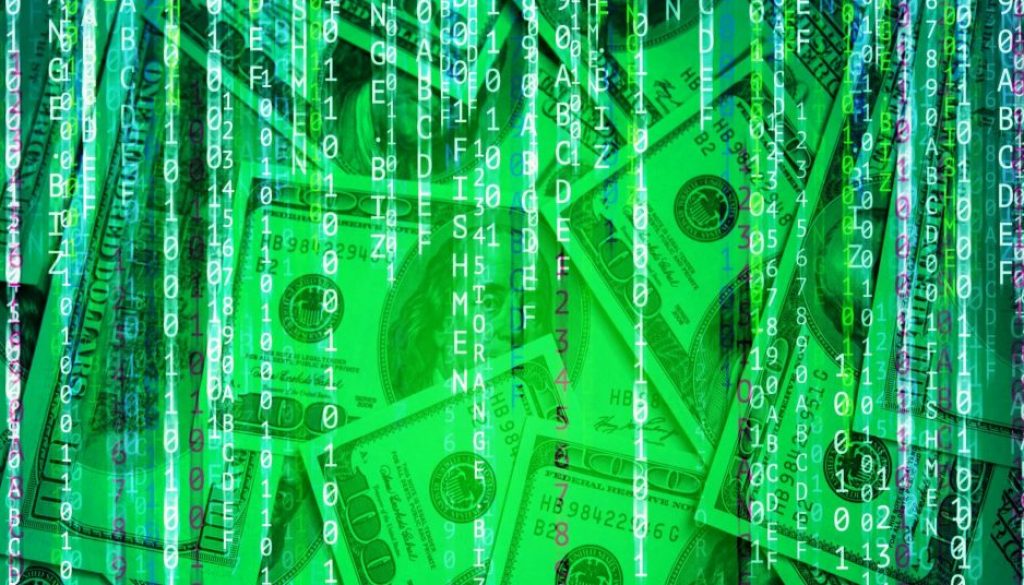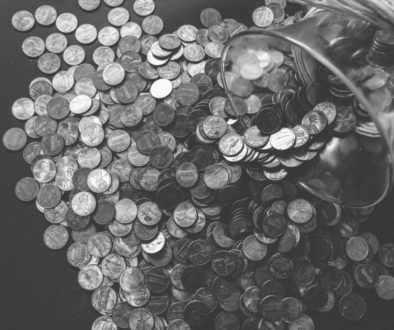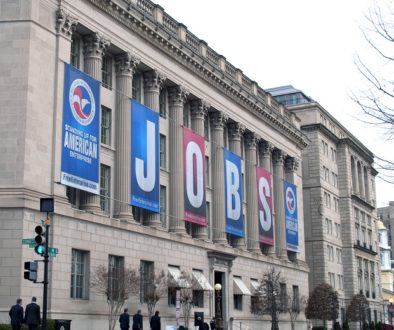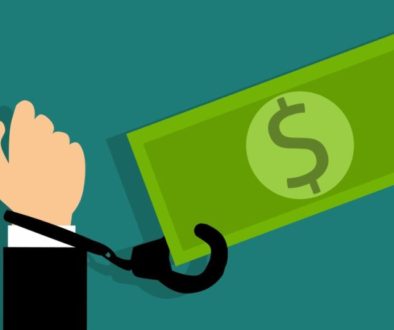The U.S. Chamber and the Secret Money Black Box
It’s a basic foundation of a democracy: voters need accurate information about candidates in order to fulfill their civic duty in casting their ballots. But increasingly, it seems that this tenet may no longer hold true in the United States. Not only is our campaign finance system built in a way that prioritizes the voices and opinions of extremely wealthy donors at a far disproportionate rate to average Americans, but nowadays, much of the nation’s political contributing is done in the shadows.
Since the Citizens United Supreme Court decision in 2010, the political donor class has begun funneling their money through non-profit organizations that can effectively make it impossible to trace since they do not need to disclose their donors. These organizations range from so-called “social welfare” organizations that are truly just a way to create political advertisements without disclosing who paid for them to trade associations like the U.S. Chamber of Commerce, which engage in largescale political activity yet likewise do not disclose their donors.
In fact, the Chamber is perhaps the single most active participant in this secret money sham. In Issue One’s new report, “Dark Money Illuminated,” the researchers find that between 2010 and 2016, the Chamber spent approximately $130 million on political advertisements—the most of any organization. It’s such an enormous total, in fact, that it accounts for roughly 1/6th of all political advertising spent by all secret money groups in that timespan. The Chamber is no stranger to massive election spending. As Public Citizen has previously reported, the Chamber spent about $30 million on the 2016 election cycle alone—and 100 percent of its spending was to benefit Republican candidates.
And while we could make educated guesses as to who funds the Chamber—the Koch Brothers’ massive far-right donor network has extensive ties to the Chamber, for example—the reality is that the organization’s lack of donor disclosure makes the source of its vast sums of political spending money untraceable. Public Citizen has found that in 2014, the Chamber reported 1,536 donations of $5,000 or greater, with the top 74 donors giving contributions of $500,000 and up, providing 57 percent of all its contributions for that year. Similarly, the Chamber’s Institute for Legal Reform, the arm of the Chamber dedicated to restricting consumer access to the courts and lobbying against more aggressive prosecution of corporate crimes, received 99 percent of its total contributions in 2014 from only 99 donors. It’s clear that a tiny number of extremely wealthy donors are funding the Chamber, which is in turn engaging in unparalleled levels of political spending. And all of it is happening in the dark.
Unless serious reforms are made to our campaign finance system, the Chamber and other secret money groups can continue to bend our campaigns and public policy further toward the interests of the extremely wealthy using deep coffers of untraceable dollars. What sorts of reforms could be made?
One important change would be issuance of clearer guidelines setting the boundaries of what sorts of political activity different types of nonprofits are allowed to engage in—with the Internal Revenue Service (IRS)’s vague “facts and circumstances” approach proving wholly inadequate. Public Citizen’s Bright Lines Project proposes the completion of a Treasury and IRS rulemaking, as well as various regulatory and legislative solutions to the problem of vague definitions of political activity.
Furthermore, Congress has various legislative solutions at its disposal. It could pass the DISCLOSE Act so that secret money groups like the Chamber are required to disclose the sources of the funds behind campaign ads on traditional media, such as TV, radio and print. It could also pass the Honest Ads Act, which would provide more transparency for campaign ads on the internet. Similarly, the Federal Election Commission (FEC)’s proposed rulemaking on disclosure of funding for internet advertisements should contain robust protections to ensure that voters know who is behind the advertisements they see. The FEC is also roiled in partisan deadlock, and substantial changes should be made to the agency’s structure to reduce its dysfunction and make it a more effective enforcer.
Another solution to this issue of secret money is to require corporations to publicly disclose their political spending. This would mean that corporations could no longer secretly donate to “social welfare” nonprofit organizations or trade associations like the Chamber to effectively lobby on their behalf. Because few corporations are likely to choose transparency of their own accord, the Corporate Reform Coalition works to persuade shareholders of publicly-owned corporations to vote in favor of disclosure requirements at shareholder meetings. The coalition also advocates for the Securities and Exchange Commission (SEC) to finish a rulemaking requiring corporate political spending disclosure at the federal level.
Last but not least, the option exists to confront the problem of secret money at its roots: the Citizens United decision and other Supreme Court decisions that have given rise to our campaign finance system. The Democracy Is For People campaign is a people’s movement calling for a constitutional amendment to overturn Citizens United and related rulings that undermine our democracy.
There is no shortage of solutions to keep organizations like the U.S. Chamber from allowing the flow of political information in our country to be dominated by the interests of the extremely wealthy through secret money. Congress and the administration should work quickly to address this blatant affront to democracy. Voters need to be in control of our democracy, and that means having all of the information about who is trying to influence their vote, not allowing billionaires to pull strings while hiding in the shadows.
Photo credit: torange.biz (Dark Money)
[CC-BY 4.0]




